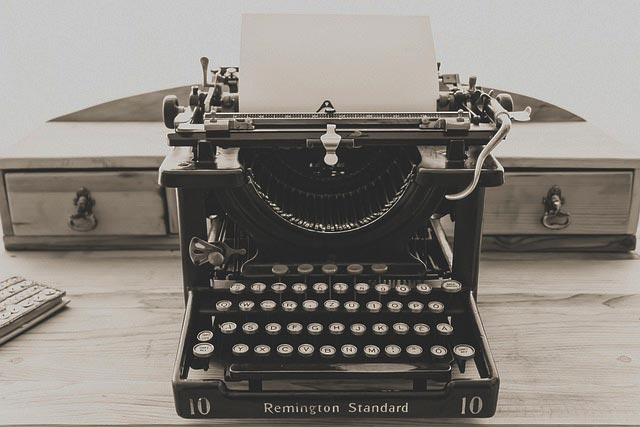Do you get stuck when using the dreaded apostrophe? You’re certainly not alone if you do. Because apostrophes are used in both contractions and possessive pronouns–but to truly understand when to use them, you have to understand common contractions and how to use them.
In spoken English, two words are commonly contracted to create abbreviated forms of word combinations. You’re rather than you are, for example.
But should you use contractions in formal writing?
This article explores when you can use contractions and when to use the original words in their un-contracted form.
What Are Contractions In Writing?
Writing contractions are shortened forms of words or phrases that combine two separate words into one.
Contractions are most regularly used in informal writing, such as emails, text messages, blogs, and personal essays, where the writer is aiming for a conversational tone. Indeed, contractions help writers can make their sentences sound more natural and less stiff.
But they can also be found in certain types of formal writing – more about that later.
Contractions in everyday speech
In everyday speech, contractions are commonly used because we rely more often on the shortened form. However, you would use the two-word, un-contracted version in more formal contexts unless you’re writing dialogue (more about that later).
Indeed, writers must understand contractions to create effective communication that resonates with an audience.
Is Using Contractions In Formal Writing Acceptable or Not?
When it comes to contractions in formal writing, there is often some debate as to whether they are acceptable or not.
On the one hand, you can use contractions to make your dialogue sound more natural. On the other hand, contractions may seem too informal for certain types of formal writing, such as academic essays or business reports.
So what’s the answer? Is it okay to use contractions in formal writing?
The answer is that it depends on your audience and purpose. If in doubt, avoid using contractions in formal writing – it’s best to adhere more closely to standard grammar rules for formal writing.
How to Write a Contraction Word
Contractions are commonly used alongside pronouns (I, he, she, it, they) and small, common words, such as not, is, and are.
Additionally, use common contractions around modal verbs (verbs that show intent, ability, necessity, or possibility, such as should, must, and can).
And while contractions represent two words or more, they act (and are counted) as a single word.
How to Create a Contraction

This is where the apostrophe comes into play – when two words are mashed up, indicating the missing letters.
Examples of contractions
Some contractions remove the first letter of the second word:
- I am becomes I’m
- They are becomes They’re
- She is because She’s
Then, some contractions remove the second letter of the second word:
- Should not becomes shouldn’t
- Could not becomes couldn’t
- Is not becomes isn’t
Then, some contractions remove the first two letters of the second word:
- It will becomes it’ll
- She will becomes she’ll
However:
The English language is a notoriously tricky beast. And sometimes, two different contractions are spelt identically:
i.e., I’d could mean I would or I have.
So, in these cases, we glean meaning from the context.
How Are Possessive Pronouns Different to Contractions?
Possessive pronouns, such as his, hers, ours, and theirs, indicate ownership of something and don’t require an apostrophe.
For example:
That table is theirs – not That table is their’s.
That book is hers – not That book is her’s.
However, if you’re talking about a book that belongs to a person, you use an apostrophe to indicate possession.
Here are a couple of examples:
If the book belongs to Sarah, it’s Sarah’s book.
If that bike belongs to John, it’s John’s bike.
You should always use apostrophes in the case of possession (with the exceptions given for a possessive pronoun, as stated above) in both formal and informal writing.
So, whether you’re writing an academic paper, an informal blog post, or an email, always use apostrophes when referring to possession.
A List of Common Contractions
Here is a list of common contractions:
- can’t (cannot)
- shouldn’t (should not)
- she’s (she is)
- he’ll (he will)
- doesn’t (does not)
- couldn’t (could not)
- could’ve (could have)
- should’ve (should have)
- it’s (it is)
- won’t (will not)
- that’s (that is)
- don’t (do not)
- we’re (we are)
What Is a Double Contraction (and should I use them)?
Often in spoken language, we use double contractions, such as:
- you’re gonna’ – you are going to
- you’d’ve – you would have
- couldn’t’ve – you could not have
- who’ll – who will
- what’ll – what will
- he’ll’ve – he will have
- she’d’ve – she would have
However, while the sounds of these words feel OK in our ears, they look incorrect on the page. Therefore, putting double contractions into a phrase or sentence on the page is generally considered incorrect and best avoided, irrespective of the form.
Exception!
Of course, there’s always an exception!
When writing dialogue, we try to express character voices accurately on the page. This lets the reader know who’s speaking, even if we don’t affirm it with “Sarah said”.
Generally, most people speak fairly ungrammatically – they don’t finish their sentences or use the incorrect vowel form. So, consider how your characters talk – do they speak in perfectly formed grammatical sentences?
So, in these cases, it’s correct to use double contractions if it helps you relay the WAY your character expresses themselves.
In fact, over-adherence to grammatical speaking often feels a little unnatural.
But:
Definitely avoid double contractions in formal writing.
Would You Use Contractions in Literature?

The correct use of contractions in literature, playwriting, screenwriting, and poetry is perfectly acceptable – as long as you’re consistent. Each sentence should feel part of the whole, so it makes sense to choose a style and stick with it.
Consider your narrator’s voice. Do they speak in contractions? Or do they use the King’s English?
Never be afraid to find a voice on the page because that is how a reader engages with your writing.
So, When Should I Use a Contraction?
While contractions are commonly used in informal writing and speaking, such as when talking with friends or posting on social media, it’s generally considered better to avoid contractions in formal writing, such as professional documents or academic writing.
Thanks for reading.
Harry Wallett is the Founder and Managing Director of Relay Publishing. Combining his entrepreneurial background with a love of great stories, Harry founded Relay in 2013 as a fresh way to create books and for writers to earn a living from their work. Since then, Relay has sold 3+ million copies and worked with 100s of writers on bestselling titles such as Defending Innocence, The Alveria Dragon Akademy Series and Rancher’s Family Christmas. Harry oversees the creative direction of the company, and works to develop a supportive collaborative environment for the Relay team to thrive within in order to fulfill our mission to create unputdownable books.
Relay Publishing Wants You
If you think you have what it takes to become a brilliant writer, editor, or storyliner, Relay Publishing has a range of exciting opportunities.
Find out more about us, and get in touch. We can’t wait to hear from you!

